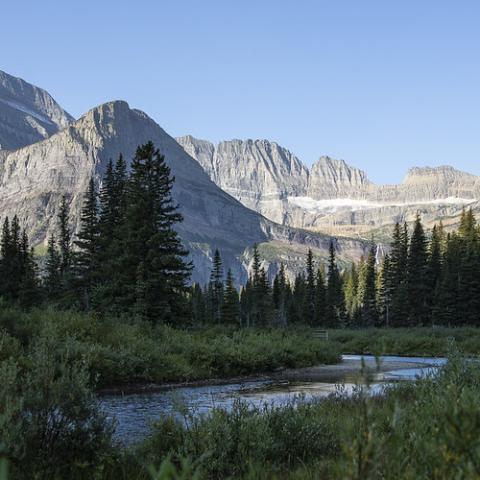
Conservation group is suing to force the U.S. Fish and Wildlife Service to determine whether nearly 300 species, including the White-tailed ptarmigan, need ESA protection/NPS
Failure so far by the U.S. Fish and Wildlife Service to rule on whether nearly 300 species of plants and animals, including wolverines at Glacier National Park and White-tailed ptarmigan at Mount Rainier National Park, need Endangered Species Act protection has prompted the Center for Biological Diversity to sue over that lack of action.
In what the organization describes as "one of the largest lawsuits ever launched under the Endangered Species Act," it has filed formal notice of its intent to sue the Trump administration for failing to decide whether 274 imperiled animals and plants across the country should be federally protected. Decisions for these species are years overdue, the group contends.
Among the species cited in the legal filing are wolverines in the Rockies, a “jumping” slug in the Pacific Northwest, moose in the Midwest, a Western bumblebee that has declined by 84 percent, Venus flytrap plants in the Carolinas, and a tiny freshwater fish that flips stones with its nose to find food.
In 2016 the U.S. Fish and Wildlife Service developed a workplan to address a backlog of more than 500 species awaiting protection decisions, the Center noted, added that the Trump administration has kept the agency from completing decisions for dozens of species every year.
“Scientists around the world are sounding the alarm about the extinction crisis, but the Trump administration can’t be bothered to lift a finger for hundreds of species that are in serious trouble,” said Noah Greenwald, endangered species director at the Center. “Every day protections are delayed is a day that moves these fascinating species closer to extinction.”
Earlier this year the Intergovernmental Science-Policy Platform on Biodiversity and Ecosystem Services, known as IPBES, warned governments around the world that 1 million species are now at risk of extinction because of human activity. IPBES scientists said that urgent actions are needed to avert mass extinction in the coming decades.
Meanwhile the Trump administration has only protected 19 species under the Endangered Species Act — the lowest of any administration at this point in the presidential term. By comparison, the Center noted that during the Obama administration 360 species were protected under the Endangered Species Act. Under President Clinton 523 species were protected, while 232 species were protected under George H.W. Bush, 62 species under George W. Bush, and 254 under Reagan, it added.
“The Trump administration’s hostility toward wildlife is appalling,” said Greenwald. “The Endangered Species Act has saved 99 percent of species under its protection, and it can save these plants and animals too, but only if they get the protection they need.”
The 274 species occur across the lower 48 states and include birds, butterflies, fish, mammals and more. All of the species face serious threats to their survival, ranging from habitat destruction to climate change to disease.
“The extinction crisis is an emergency of epic proportions, and habitat loss is playing a huge role,” Greenwald said. “If we’re going to have any real shot at saving these species, we need to protect more of the land and water in this country that they need to survive.”




 Support Essential Coverage of Essential Places
Support Essential Coverage of Essential Places







Add comment